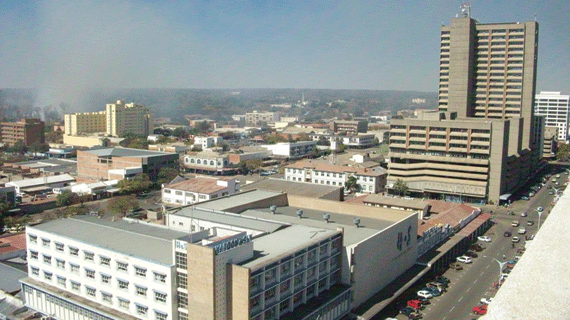
SOME troubled Bulawayo firms are unlikely to open in 2014 due to the prevailing harsh economic environment worsened by a severe liquidity crunch, analysts predicted last week.
GAMMA MUDARIKIRI OWN CORRESPONDENT
Some companies in Bulawayo sent workers home penniless ahead of the Christmas and New Year holidays without indications of when they would reopen for 2014.
Disgruntled employees of some affected companies told Southern Eye their respective management informed them they would be phoned at the appropriate time to report for duty.
Analysts say the situation pointed to a very bleak 2014 for the local economy, saying there were little prospects of growth in the next 12 months unless the government sprung a miracle to rescue struggling firms.
Information obtained from the offices of the Bulawayo deputy master of the High Court shows that 2013 ended with three more companies being liquidated while 12 others were placed under judicial management.
The three liquidated companies are Geozing Pawn Brokers (Pvt) Ltd, Duze Oil (Pvt) Ltd and Walters Bakery (Pvt) Ltd, raising the spectre of a continued deindustrialisation and the consequent rise in unemployment levels.
Twelve companies, among them Polyfoil Zim Ltd, Ocean Park — t/a Tashas Supermarket (Pvt) Ltd, Paramount Motors (Pvt) Ltd, Lazen Burry Engineering, Impala Enterprises (Pvt) Ltd, Lasker Brothers (Pvt) Ltd, placed under judiciary management during the past 12 months.
- Chamisa under fire over US$120K donation
- Mavhunga puts DeMbare into Chibuku quarterfinals
- Pension funds bet on Cabora Bassa oilfields
- Councils defy govt fire tender directive
Keep Reading
But with the Zanu PF administration failing to inspire confidence in the economy in the New Year, economic commentators predicted gloom, pointing out that the government had failed to make available an anticipated urgent financial rescue package for Bulawayo firms which have been listed in critical condition for a long time.
“The continued liquidation of companies and foreclosures is a very sad development for industries particularly in Bulawayo when it is happening at a time when we all had hoped that things would be better,” Bulawayo Business Arise administrator George Mukamba said.
Presenting the 2014 budget Finance minister Patrick Chinamasa proposed a raft of measures to salvage the dilapidated industries which recorded a capacity utilisation of 39,6% last year.
Although the anti-dumping policy is a welcome move for most players, the proposed hike of import duty on some goods had been criticised as likely to load to prices increases as the local industry is depressed and cannot sustain consumer demand.
“The quantities which the local industry can produce are far below demand and increasing import duty would be a cost transferred to the consumer,” economist John Robertson said.
Critics blame policy inconsistencies, chiefly the indigenisation law which calls for foreign companies to cede 51% of their shareholding to locals, as one of the limitations to efforts to revive economic stagnation.
The empowerment policy is seen as scaring away investors. Prominent Bulawayo economic commentator Eric Bloch, however, said although performance by industry would be slow at the beginning of the year largely due to shortage of working capital, among other challenges, it was likely to see a slight recovery mid-year.










